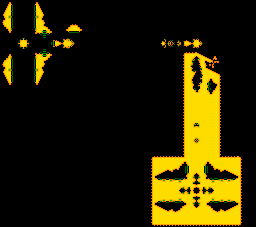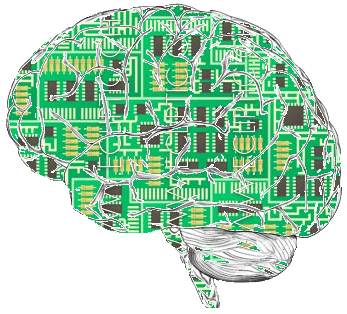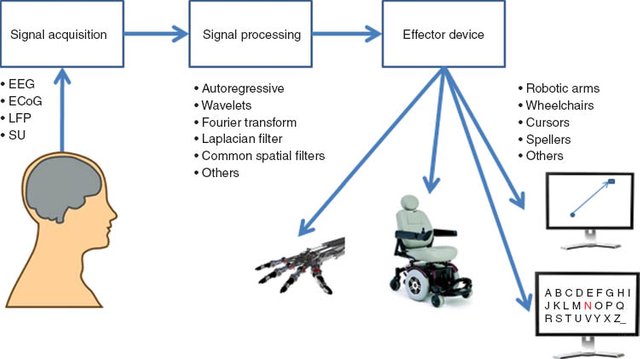Rationalia, Nomics, and the Virtual State
Rationalia, Nomics, and the Virtual State

Recently in the news we can find Neil Degrasse Tyson putting forth an idea for how to structure a virtual state. This is important because for the past few years I have been associated with a movement called Zero State which essentially is based around a similar ideal. Zero State has transitioned into the Transhumanist Party UK, Transhumanist Party Virtual, Transhumanist Party America (which Zoltan Istvan is the Presidential candidate). So now I post Neil Degrasse Tyson's quote below:
Earth needs a virtual country: #Rationalia, with a one-line Constitution: All policy shall be based on the weight of evidence
— Neil deGrasse Tyson (@neiltyson) June 29, 2016
It should be a simple deduction to conclude that all policy must have evidence to support it. This is evidence based policy and is actually well aligned with the Transhumanist Party. Rationalia would likely be a virtual state which has a particular base or root rule in a Nomic game which promotes a pro-rational evolutionary trajectory. Of course a virtual country or state would need more than to just be rational because being rational is primary a means to an end but when enacting policy it does make sense at least to me for that to be done on an outcome based manner.
What is a virtual state?
We are now in the era of blockchain governance. We have the ability to build a distributed parallel virtual state by utilizing blockchain technology, smart contract technology, and secure computing paradigms. This does not mean these virtual states will have sovereignty which will be recognized by traditional states but it does mean it is now feasible to build a virtual state which governs some portion of cyberspace by voluntary non-violent means.
Virtual states have some advantages over traditional states. An advantage is that a virtual state may better be able to take advantage of big data and AI. Virtual states may also have the advantage of being global and local at the same time because it's digitized. There are of course some challenges with this but the digitized self at this point in time is something most people do not even recognize as themselves but this may change if newer philosophical models such as extended mind theory catch on during the era of intelligent agents.
A citizen of a virtual state can be more than human. A cyborg for example could be a human but also include the digital apparatuses controlled by the will of that human such as their intelligent agents.
What is a Nomic?
A Nomic is a game where changing the rules of the game is part of the game. In the context of a Nomic the rule presented by Neil Degrasse Tyson could be the first rule. This first rule would be the basis for all future rules and would effect the evolution of the game itself.
Nomics are interesting because they are self defining. This ability to self define is very similar to having a constitution to govern the behavior of the game which can be amended as the game is being played. It would be important to of course try to figure out which base rules are most likely to produce good outcomes and the selection of these base rules very well may need to be based on science, based on a weight of evidence which indicates it satisfies a particular criteria and or has in the past produced desirable consequences for the players.
What are intelligent agents?
I've been using the term intelligent agents quite a bit so what is an intelligent agent exactly? An intelligent agent defined by wikipedia:
In artificial intelligence, an intelligent agent (IA) is an autonomous entity which observes through sensors and acts upon an environment using actuators (i.e. it is an agent) and directs its activity towards achieving goals (i.e. it is "rational", as defined in economics[1]). Intelligent agents may also learn or use knowledge to achieve their goals. They may be very simple or very complex: a reflex machine such as a thermostat is an intelligent agent.[2]
I realize this definition might not be clear and there is also the concept of the autonomous agent. So in our case when I say intelligent agent please assume I'm primarily talking about what would commonly be viewed as software agents which are like bots which are autonomous but which only act according to the commands, preferences or will of the owner. For this reason if you take the view that extended mind theory is legitimate then these agents would be a part of rather than separate from the entity that owns it. The digital self would represent the entity in digital form, utilizing all aspects of the entity, such as data, preferences, values, and may eventually even go on to constitute a substrate independent mind.
What is a substrate independence (digital immortality)?

At this point in time most people would consider a substrate independent mind in the form of mind uploading to be science fiction. Substrate independence in an information universe is based on the concept of pattern survival. The digital self is just a pattern and because of this it can be represented as information in binary form. Experiments have shown that the will can be completely digitized and transferred from one brain to another through a brain to computer interface for example.
On the other hand by using these agents the will of an entity can be captured and that can be encoded into cyberspace. Whole brain emulation may not be practical but the agent based approach is practical and is called an exocortex.
What is an exocortex?

In one of my previous articles titled "Why we need to build an exocortex (Thinking Outside The Brain)" I discussed the idea of an exocortex. An exocortex is a potential outcome of the philosophy of extended mind theory combined with the natural technological trajectory of Google. Google if unhindered will most likely continue to evolve until it functions as an exocortex and in some ways it already is functioning as an exocortex for some people because search engine functionality is the basis for that.
The problem with using Google as an exocortex is that it is centralized. It is under central control, so if all of the world were to trust Google with their most private thoughts then there is no guarantee that someone at Google isn't spying or snooping or waiting to use it against them. For this privacy reason among many others it might make sense to build a decentralized exocortex. The other reason to do it decentralized is that it distributes the ownership back to the individual instead of selling the individual to the Google AI.
The potential for hive minds in an information universe (brain nets)

Hive minds are possible as well because as has been seen in the experiment where you have the ability to create communication between two minds by brain to computer interface, then it is very easy to see how this can be expanded just as the connection between two computers expanded to include millions of computers to form the Internet. The ability for a group of entities to form a group mind is possible but what could this look like?
The brain net was created in a recent experiment involving connecting animal brains using a brain to computer interface. The experiment found that the animals were capable of doing parallel processing without the need for language. Entities who join a brain net would never have a need to vote because their governance could adapt at the rate of thought.
Social networks as contract enforcement

Reputation is one way which a virtual state can self govern. In virtual space the reputation of an entity in that space can be quantified by ratings. Steem allows for collaborative filtering which is just the start of this reputation based governance era but this will continue to expand as the technology eventually will allow for rating of any and all things. Laws can be rated, smart contracts can be rated, ideas can be rated, transactions can be rated, and in the end everything with a rating can have a quantified reputation. Quality is quantified by reputation after a review has taken place. This is the function of curation and it is this same function which we see here on Steemit which will become a prime mechanism for enforcement without coercion.
Entities (animals, humans, robots, an in-between), all have reputations to maintain in order to gain access. If we go back to the term intelligent agents then we could use that to describe what an entity does but we could use reputation to explain the constraints on any entity.
- A human being who has much more to gain by maintaining a good reputation will do what they can to not lose their reputation because reputation for a human being is an intangible asset which is very hard to gain but can be easily lost.
- A robot or autonomous agent in the form of a self driving self owned taxi would also want to get good ratings because by getting good reviews from passengers it is more likely that it will earn a profit, that it's pattern will be replicated into offspring, and if it is part of a fleet or network, it might be that to stay a part of that network it has to meet a minimum threshold in reviews.
- A cyborg (human augmented with AI) would also seek to maintain a reputation. The cyborg who farms her intelligent agents would be able make much money money if her intelligent agents have a good reputation. For this reason her intelligent agents represent her digital self and cannot be separated from her because a malfunctioning intelligent agent which can be linked to her would damage her reputation. If a human being is scammed by her intelligent agent then that human being is going to feel as if they were scammed by her.
References
- http://bigthink.com/paul-ratner/neil-degrasse-tyson-just-proposed-an-ideal-form-of-government
- http://www.transhumanistparty.org.uk/
- https://en.wikipedia.org/wiki/Federated_search
- https://en.wikipedia.org/wiki/Intelligent_agent
- http://econweb.ucsd.edu/~jandreoni/Econ264/papers/Fehr%20et%20al%20EMetrica%201997.pdf
- https://stanford.edu/~arungc/CKL.pdf
- http://www.washington.edu/news/2015/09/23/uw-team-links-two-human-brains-for-question-and-answer-experiment/
- https://www.newscientist.com/article/dn27869-animal-brains-connected-up-to-make-mind-melded-computer/
- https://en.wikipedia.org/wiki/Memex